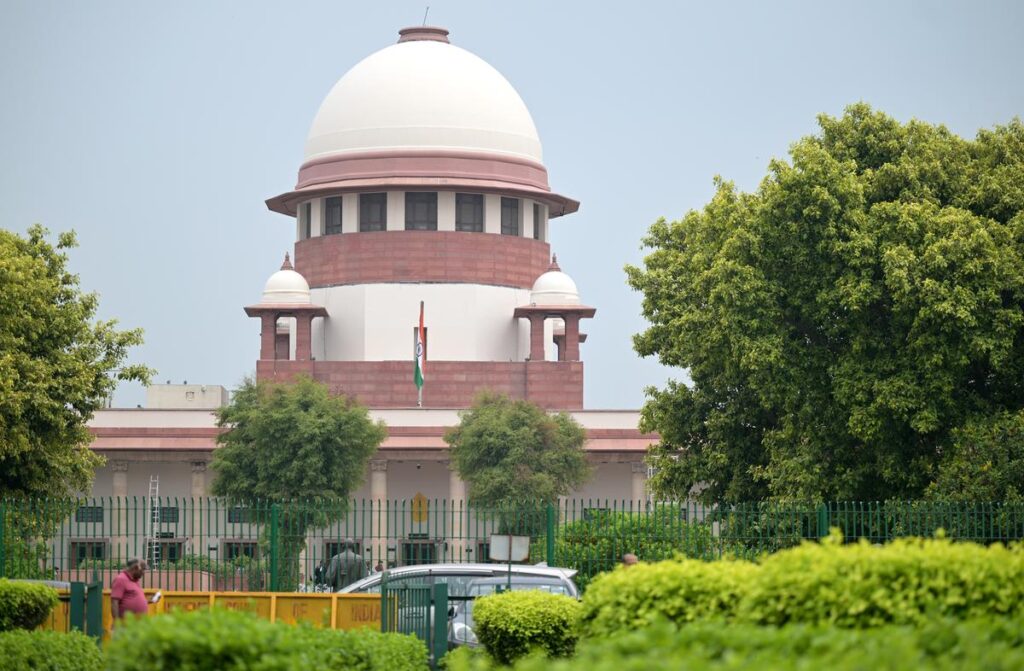THIRUVANANTHAPURAM: The Supreme Court’s order fixing a time-frame for the President and the Governors to act in the case of bills passed by the State Legislatures in Tamil Nadu’s case has given Kerala a booster shot.
Buoyed by the apex court’s historic order, Kerala is all set to argue that the principles laid down by the top court in Tamil Nadu’s case should be applied in Kerala’s case too, and the bills should be deemed to have been assented to on the date they were presented to the Governor.
It may be pointed out that Kerala had earlier moved the apex court against similar acts by former Governor Arif Mohammed Khan. It had also approached the Supreme Court against President Draupadi Murmu’s act of withholding assent to a slew of bills.
Kerala’s contention will be on these lines: the very act of Governor sitting on the bills and later referring them to the President was “erroneous in law”. The fact that the President had given no reasons for withholding consent to the bills will be highlighted by the State.
A significant feature of the Supreme Court order in the TN Governor’s case is that the apex court had made it clear that the President should assign clear and adequately detailed reasons while denying assent to the pending bills.
Among the bills awaiting the Presidential assent, in Kerala’s case, are: the University Laws (Amendment) Bill, 2021; University Laws (Amendment no. 2) Bill, 2021; Kerala Co-operative Societies (Amendment) Bill, 2022; and the University Laws (Amendment no. 3) Bill, 2022, which were referred to the President by the Governor. Also pending clearance are the Kerala State Private Universities (Establishment and Regulation) Bill, 2025; Kerala State Elderly Commission Bill, 2025 and the Kerala Industrial Infrastructure Development (Amendment) Bill, 2024.
A clincher in the arguments of Kerala would be: applying the guidelines framed by the top court in Tamil Nadu’s case to its own grievances would show that the acts of Arif Mohammed Khan too were bad in law and hence liable to be quashed. Incidentally, Khan had referred the bills to the President after he had promulgated them as ordinances!
Significantly, the apex court, which has set a timeline for the Governors to act on the bills, has said that their role under Article 200 of the Constitution was restricted to three options: granting assent, withholding assent, or reserving the Bill for the consideration of the President.
If Kerala Governor Rajendra Vishwanath Arlekar decides to withhold assent or reserve the Bill for the President, decisions will have to be taken within one month of the Bill reaching him. If he decides to withhold assent, the Bills have to be returned to the State Legislature within three months. The Governor will also reserve the Bill for the President within three months of his receiving it.
The SC has also asked the Governors to grant assent to the Bills which are re-passed and re-presented by the Legislature within one month. In the light of the SC order in the Tamil Nadu Governor’s case, Kerala will submit the Bills for the approval of the Governor soon.
Meanwhile, Tamil Nadu created legislative history when the State Government notified 10 Acts in the Government Gazette, making them the first Bills to become law without the assent or either the President or the Governor. This follows the SC order that these Bills, readopted by the State Assembly and sent to the President by the Governor were “deemed” to have received assent.
In another development, the Union Home Ministry is likely to file a review petition against the apex court’s April 8 judgment allowing judicial intervention if Governors withhold assent to legislative bills for too long.
Kerala Governor Arlekar has added a new dimension to the whole issue by criticizing the SC order, which he said was a case of “overreach”. In a media interview, Arlekar opined that the Tamil Nadu case should have been referred to a Constitution bench.
The Kerala Governor was of the view that the SC fixing a time-limit for the Governor to give assent to the Bills amounted to a constitutional amendment, which was the prerogative of Parliament. Anyone asking the Governor to act within a certain time was not implied in the Constitution.
Reacting to Arlekar’s comment, Kerala Law Minister P. Rajeeve said the Governor was well within his rights to criticise the judgment of the Supreme Court. However, the decision of the SC is the law of the land, he contended, adding that the apex court also had the right to review the validity of even constitutional amendments made by Parliament. (IPA Service)




 Trump Refashions The Working Of White House Media Room To The Ire Of Correspondents
Trump Refashions The Working Of White House Media Room To The Ire Of Correspondents 